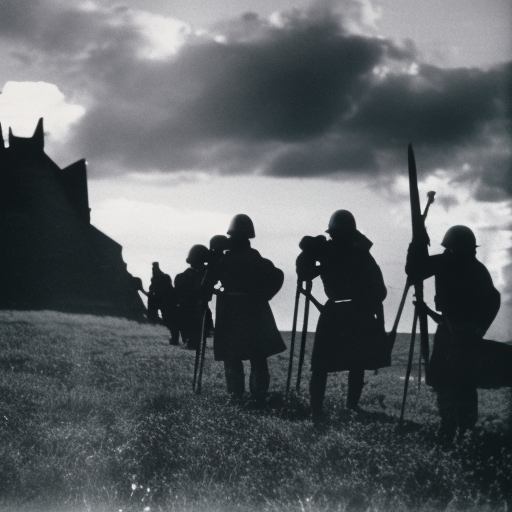Viking Expeditions: The Age of Exploration
The Viking expeditions were a series of exploratory voyages undertaken by the Norse people, known as Vikings, during the Viking Age (793-1066 AD). These expeditions played a significant role in shaping the history of Europe and beyond. The Vikings, renowned for their seafaring skills and warrior culture, ventured out from their Scandinavian homelands to explore, trade, and raid distant lands.
The Viking Longships: The Key to Exploration
The Viking longships were the backbone of the Viking expeditions. These sleek and sturdy vessels were designed to navigate both shallow rivers and open seas, allowing the Vikings to travel far and wide. Equipped with a single mast and square sail, these ships were also capable of rowing, making them highly versatile and maneuverable. The longships’ shallow draft enabled them to navigate rivers, allowing the Vikings to penetrate deep into continental Europe.
Raiding and Plundering: The Early Viking Expeditions
In the early stages of Viking expeditions, the primary objective was raiding and plundering. The Vikings targeted monasteries, coastal towns, and wealthy settlements, taking advantage of their superior naval capabilities and surprise attacks. These raids not only brought the Vikings wealth and valuable resources but also spread fear throughout Europe. The most famous Viking raid was the sacking of the monastery at Lindisfarne in 793 AD, which marked the beginning of the Viking Age.
Exploration and Settlement: The Expansion of Viking Influence
As the Viking expeditions continued, the focus shifted from raiding to exploration and settlement. The Vikings began to establish permanent settlements in areas they had previously raided, such as the British Isles, Iceland, Greenland, and even as far as North America. These settlements served as trading posts and bases for further exploration. The most notable Viking settlement was in Vinland (modern-day Newfoundland, Canada), which was established around 1000 AD.
The Viking Expansion: Trade and Cultural Exchange
The Viking expeditions also facilitated extensive trade networks and cultural exchange. The Vikings traded various goods, including furs, timber, weapons, and slaves, with both neighboring regions and distant lands. They established trade routes that extended from the Baltic Sea to the Mediterranean, connecting Scandinavia with the Byzantine Empire and the Islamic world. This trade not only brought economic prosperity but also introduced new ideas, technologies, and cultural influences to the Viking homelands.
The Decline of Viking Expeditions
By the 11th century, the Viking expeditions began to decline due to several factors. The consolidation of political power in Europe, the spread of Christianity, and increased resistance from local populations made raiding less profitable and riskier. Additionally, the internal conflicts and power struggles within the Viking societies diverted their attention away from exploration. The Viking Age ultimately came to an end with the Norman Conquest of England in 1066 AD.
The Legacy of Viking Expeditions
The Viking expeditions left a lasting impact on the regions they explored and settled. The Vikings played a crucial role in the development of trade routes and the spread of cultural influences across Europe. They also influenced the political landscape, with Viking descendants establishing powerful kingdoms, such as the Kingdom of Dublin and the Duchy of Normandy. The Viking expeditions also contributed to the expansion of the Norse mythology and language, as well as the development of shipbuilding techniques.
In conclusion, the Viking expeditions were a defining feature of the Viking Age, characterized by their seafaring prowess and adventurous spirit. These expeditions started as raids but evolved into exploration, settlement, and trade. The Viking longships, with their versatility and navigational capabilities, were instrumental in the success of these expeditions. While the Viking expeditions eventually declined, their legacy in terms of trade, cultural exchange, and political influence continues to resonate in the history of Europe and beyond.












